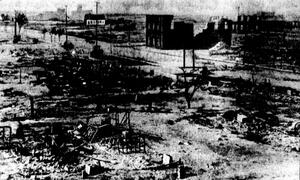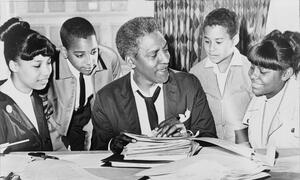article
Policing Our Schools
Last month, 12-year-old Alexa Gonzalez used an erasable marker to scribble on her desk. “I love my friends Abby and Faith,” she wrote, along with, “Lex was here. 2/1/10,” punctuated with a happy face. But neither her Spanish teacher nor the principal at Alexa’s Queens, New York, middle school were amused. They called school security—New York City police officers—who arrested and handcuffed Alexa, and walked her across the street to their precinct, according to the New York Daily News.

